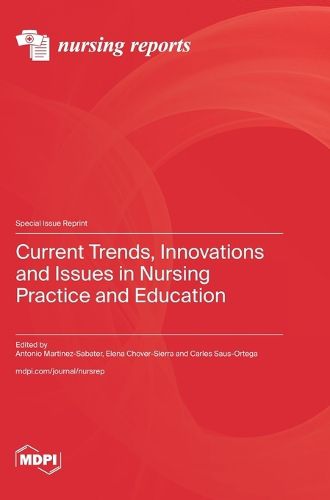Readings Newsletter
Become a Readings Member to make your shopping experience even easier.
Sign in or sign up for free!
You’re not far away from qualifying for FREE standard shipping within Australia
You’ve qualified for FREE standard shipping within Australia
The cart is loading…






This title is printed to order. This book may have been self-published. If so, we cannot guarantee the quality of the content. In the main most books will have gone through the editing process however some may not. We therefore suggest that you be aware of this before ordering this book. If in doubt check either the author or publisher’s details as we are unable to accept any returns unless they are faulty. Please contact us if you have any questions.
The development of health sciences in recent years has made it necessary to implement changes in the training of health professionals from the undergraduate level. This training must include the acquisition of knowledge, skills, and attitudes that ultimately improve patient safety and quality of care. Concurrently, the use of different tools to assess the level of knowledge in certain areas of the training of nurses and analysis of the different study plans allow training to be oriented to the specific needs of each reality. Nowadays, it is necessary to develop, plan, and utilize new teaching methodologies and tools that allow us to assess and measure the level of knowledge of professionals and students and evaluate the quality of training at the different levels of care. The use of tools and methodologies that enhance virtual environments, advanced practices, gamification, and traditional methodologies must be implemented to improve care practice, optimize and manage health resources, and promote teamwork. These training innovations must not be excluded from undergraduate training. However, they must be applied to the continuous training of active professionals, who must ensure that they are constantly updated to develop their activity by adapting to new work environments. Teaching innovation in healthcare practice settings represents an essential challenge for teachers in charge of training future nurses and active professionals.
$9.00 standard shipping within Australia
FREE standard shipping within Australia for orders over $100.00
Express & International shipping calculated at checkout
This title is printed to order. This book may have been self-published. If so, we cannot guarantee the quality of the content. In the main most books will have gone through the editing process however some may not. We therefore suggest that you be aware of this before ordering this book. If in doubt check either the author or publisher’s details as we are unable to accept any returns unless they are faulty. Please contact us if you have any questions.
The development of health sciences in recent years has made it necessary to implement changes in the training of health professionals from the undergraduate level. This training must include the acquisition of knowledge, skills, and attitudes that ultimately improve patient safety and quality of care. Concurrently, the use of different tools to assess the level of knowledge in certain areas of the training of nurses and analysis of the different study plans allow training to be oriented to the specific needs of each reality. Nowadays, it is necessary to develop, plan, and utilize new teaching methodologies and tools that allow us to assess and measure the level of knowledge of professionals and students and evaluate the quality of training at the different levels of care. The use of tools and methodologies that enhance virtual environments, advanced practices, gamification, and traditional methodologies must be implemented to improve care practice, optimize and manage health resources, and promote teamwork. These training innovations must not be excluded from undergraduate training. However, they must be applied to the continuous training of active professionals, who must ensure that they are constantly updated to develop their activity by adapting to new work environments. Teaching innovation in healthcare practice settings represents an essential challenge for teachers in charge of training future nurses and active professionals.